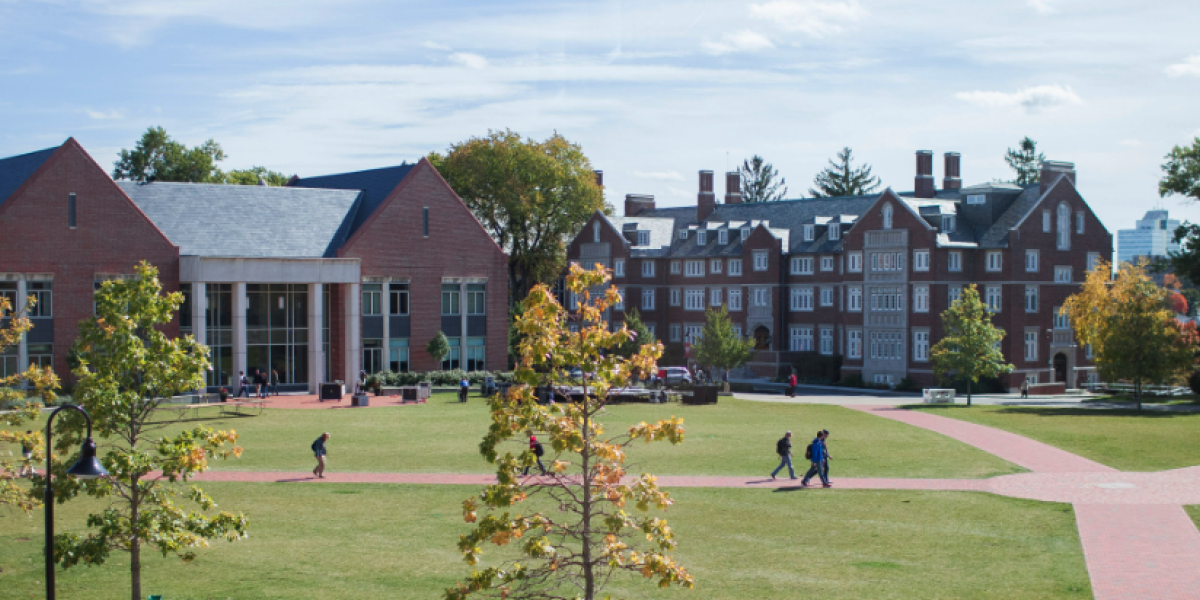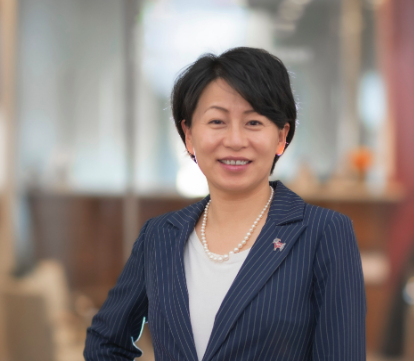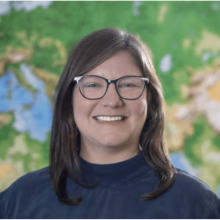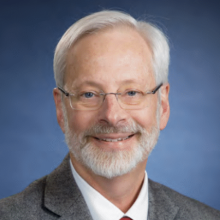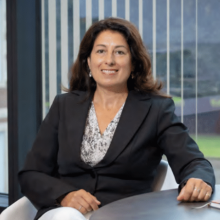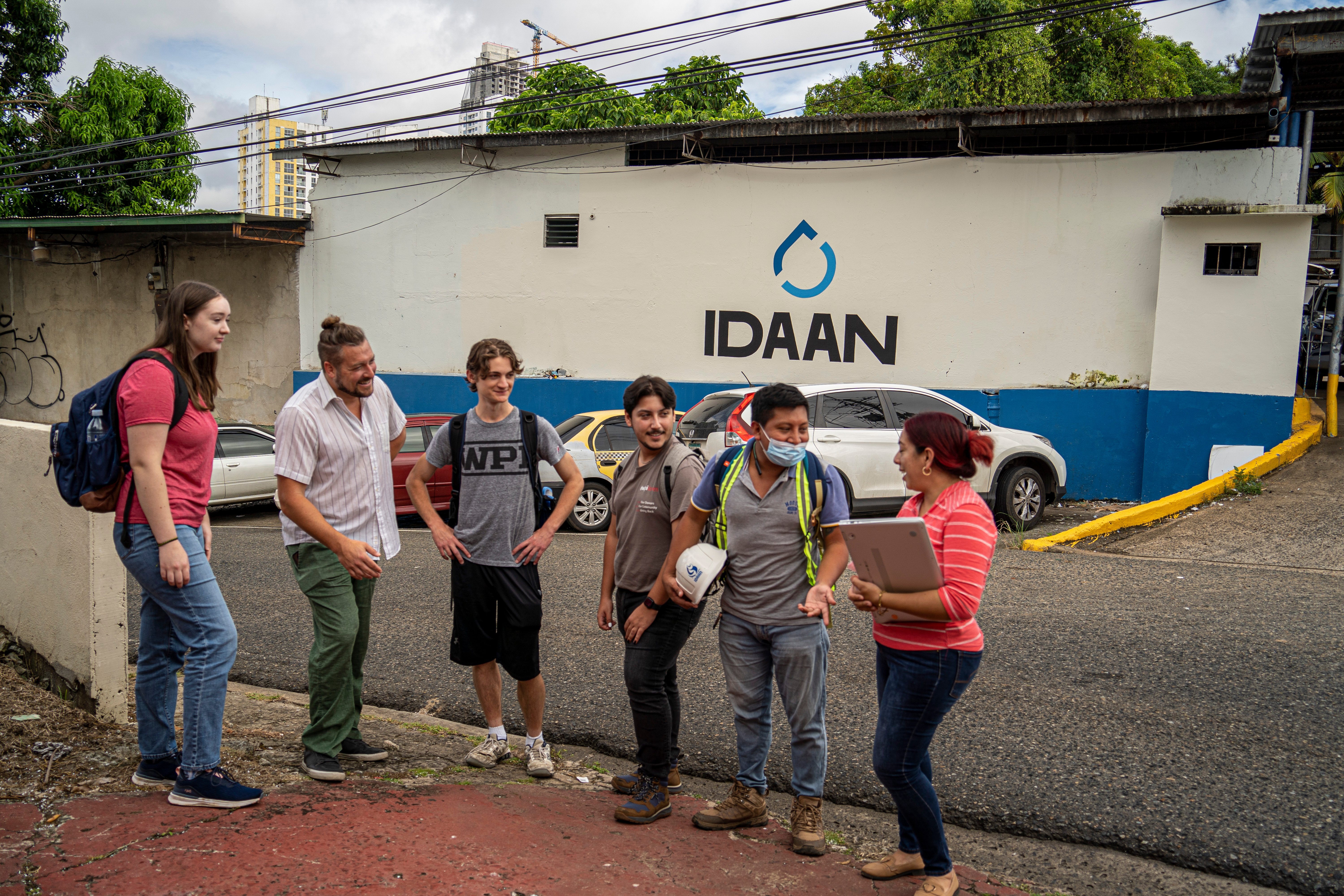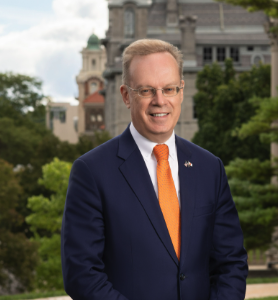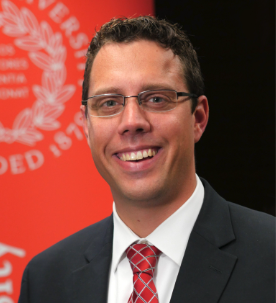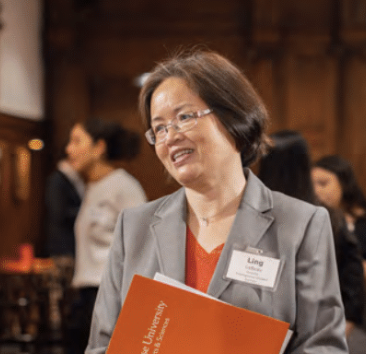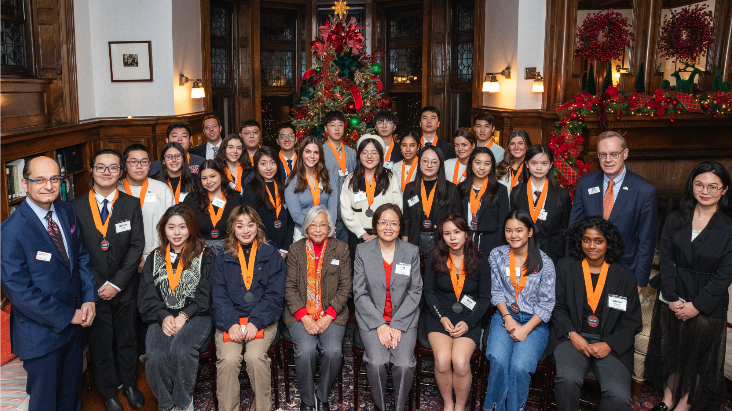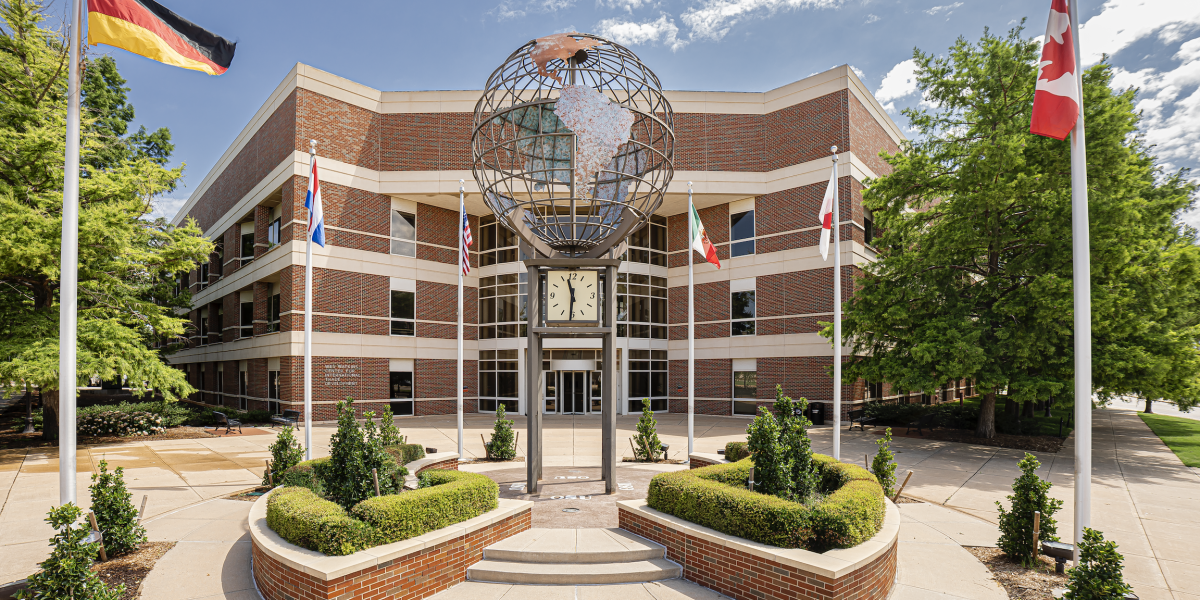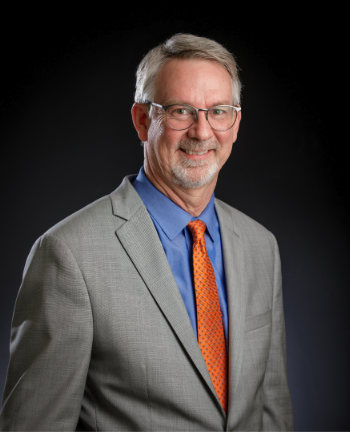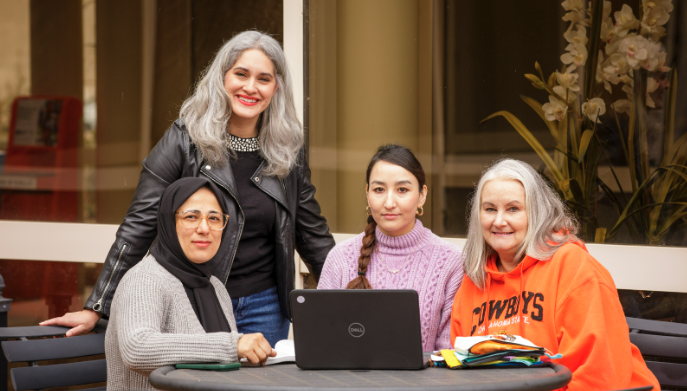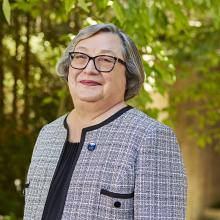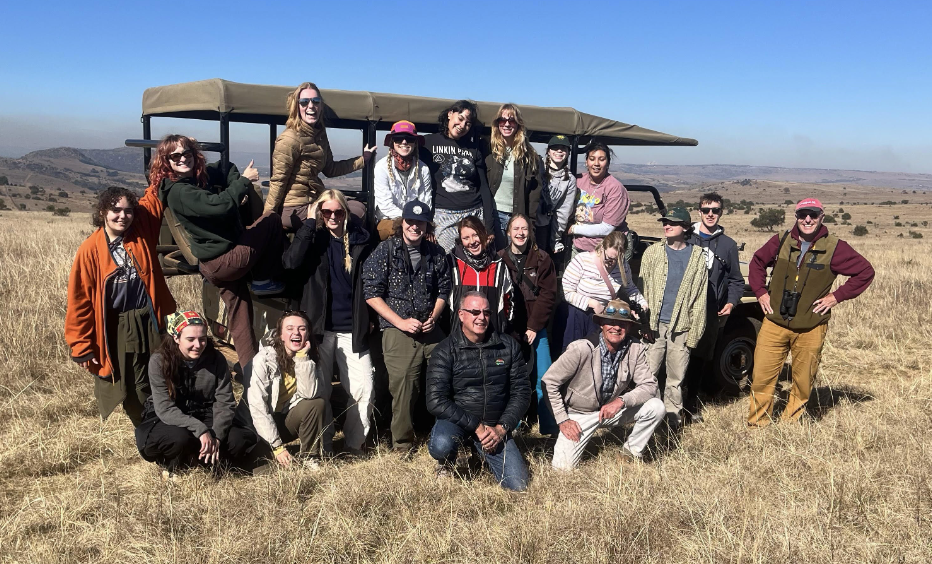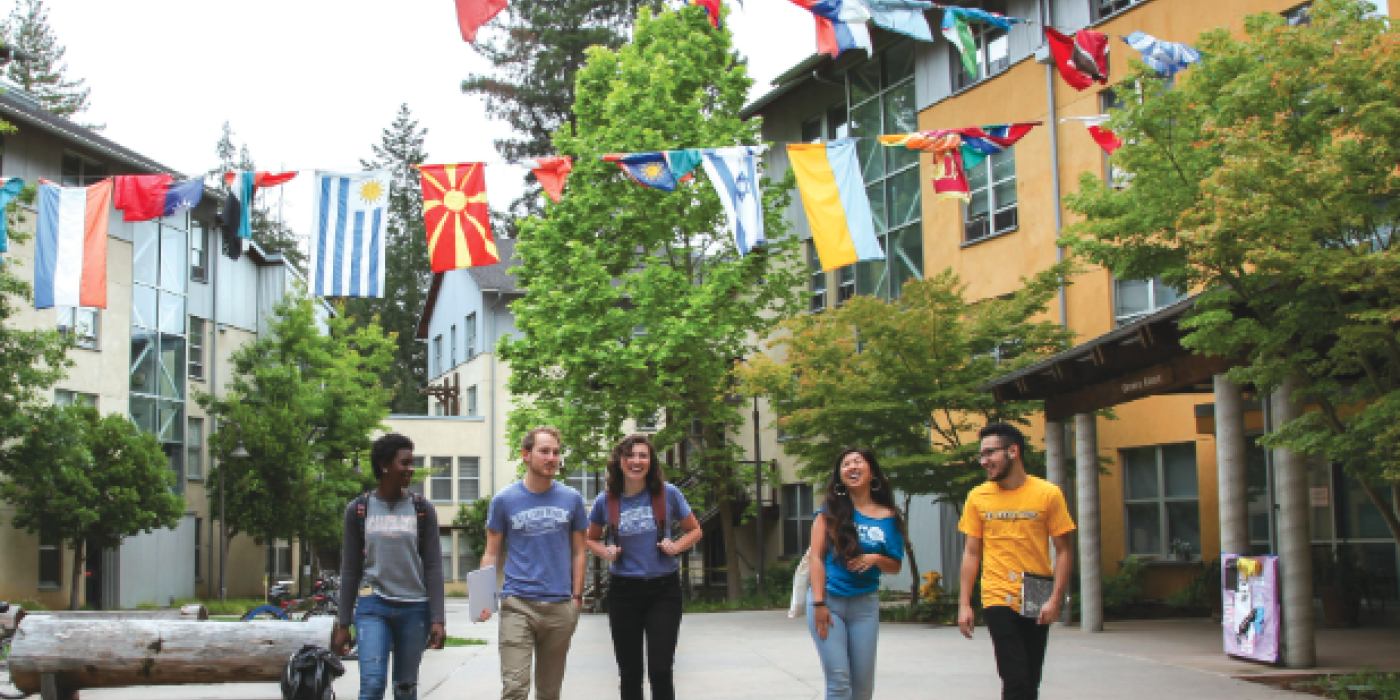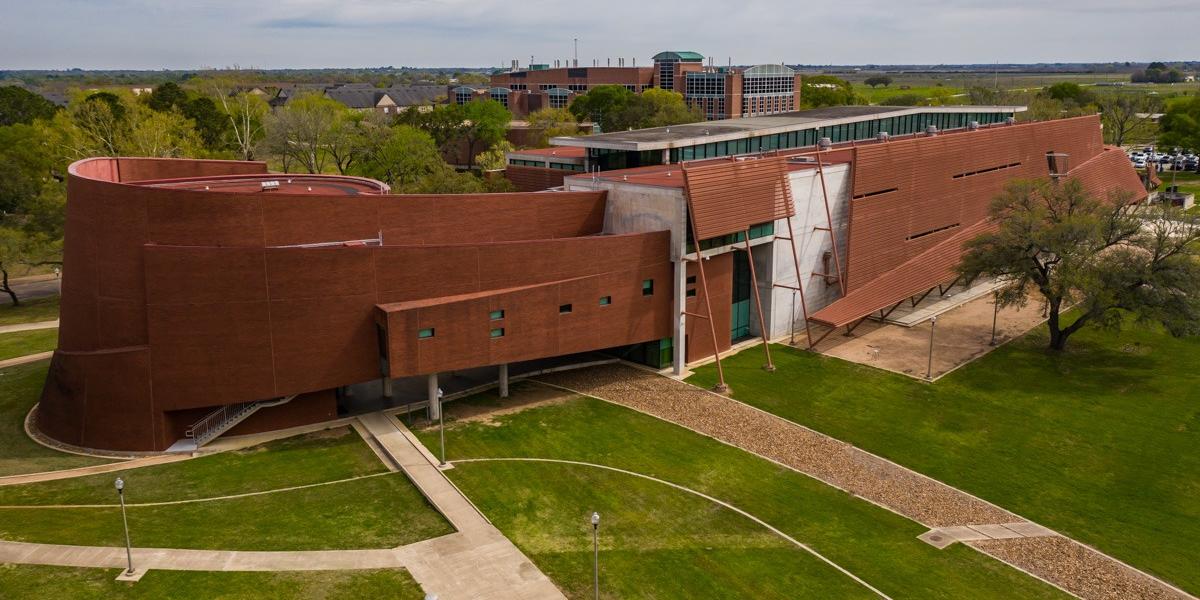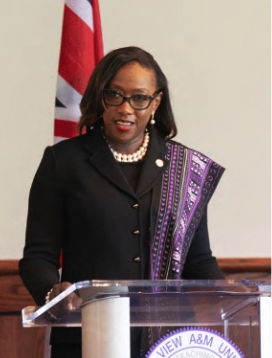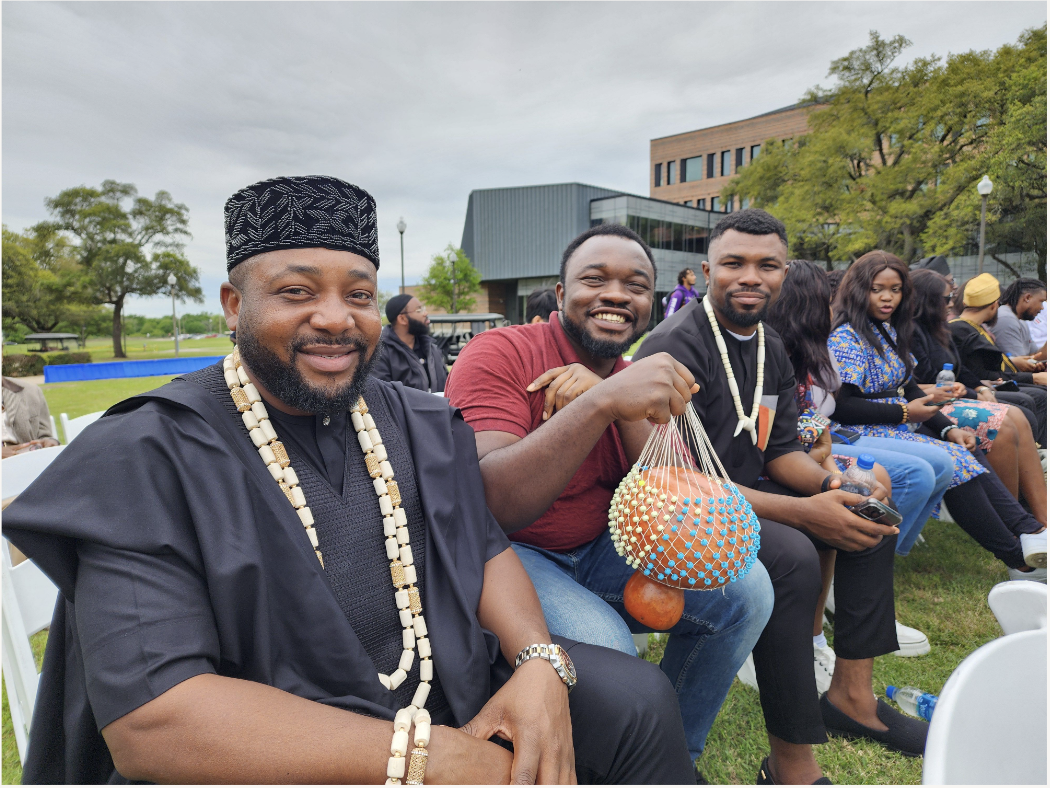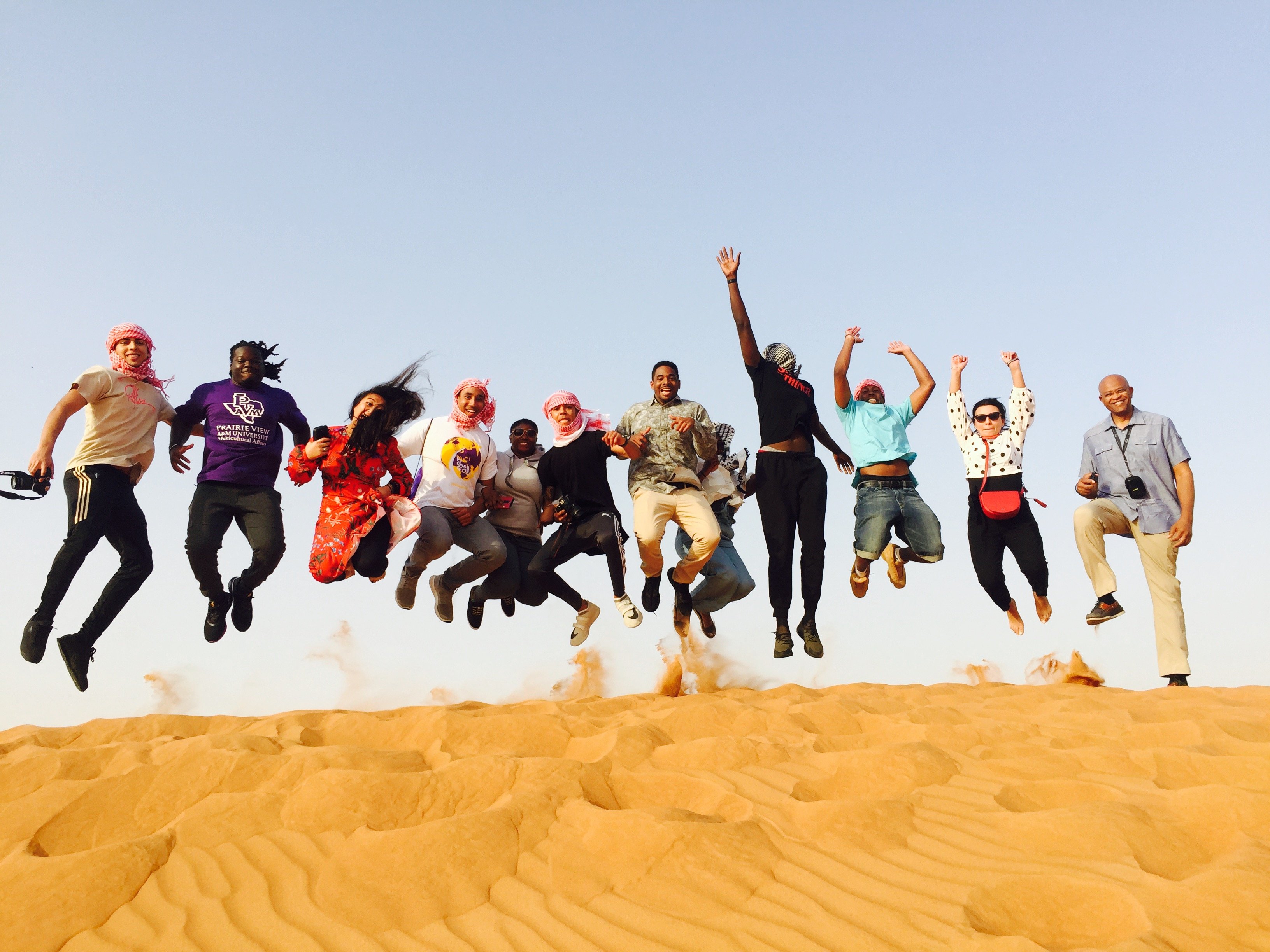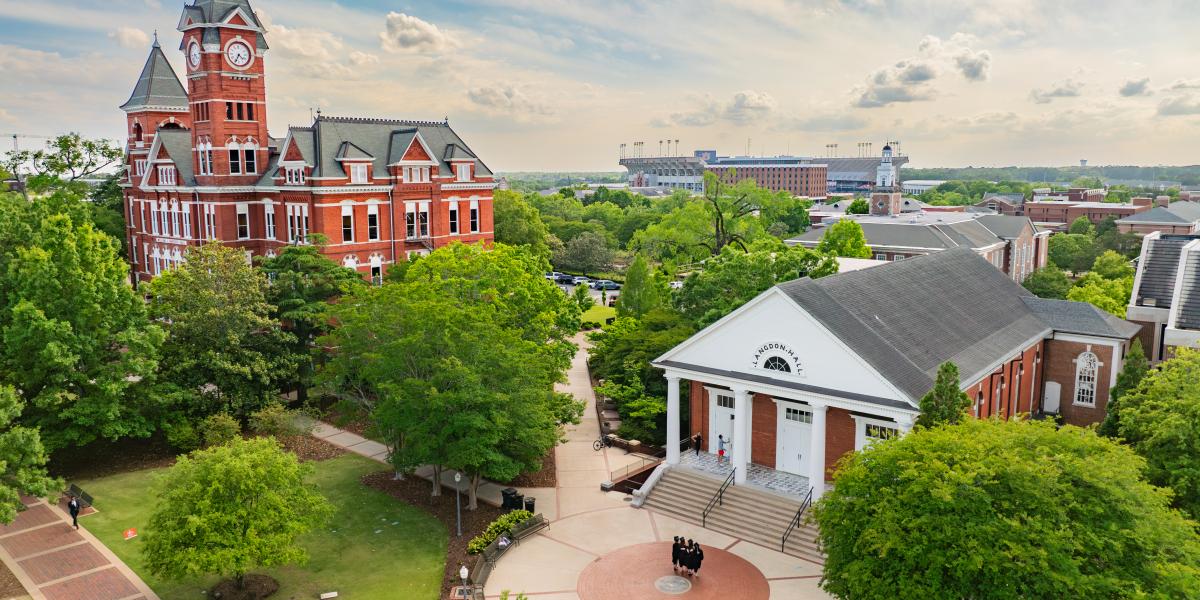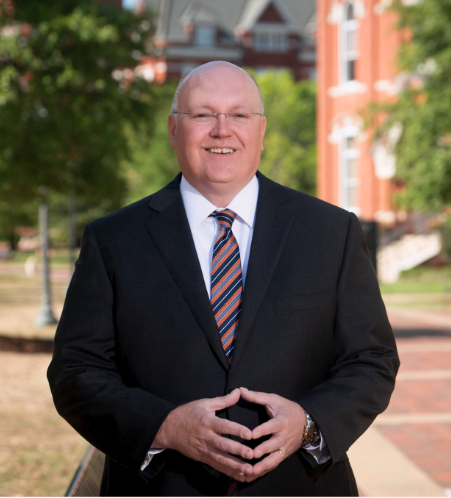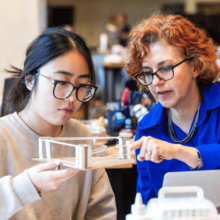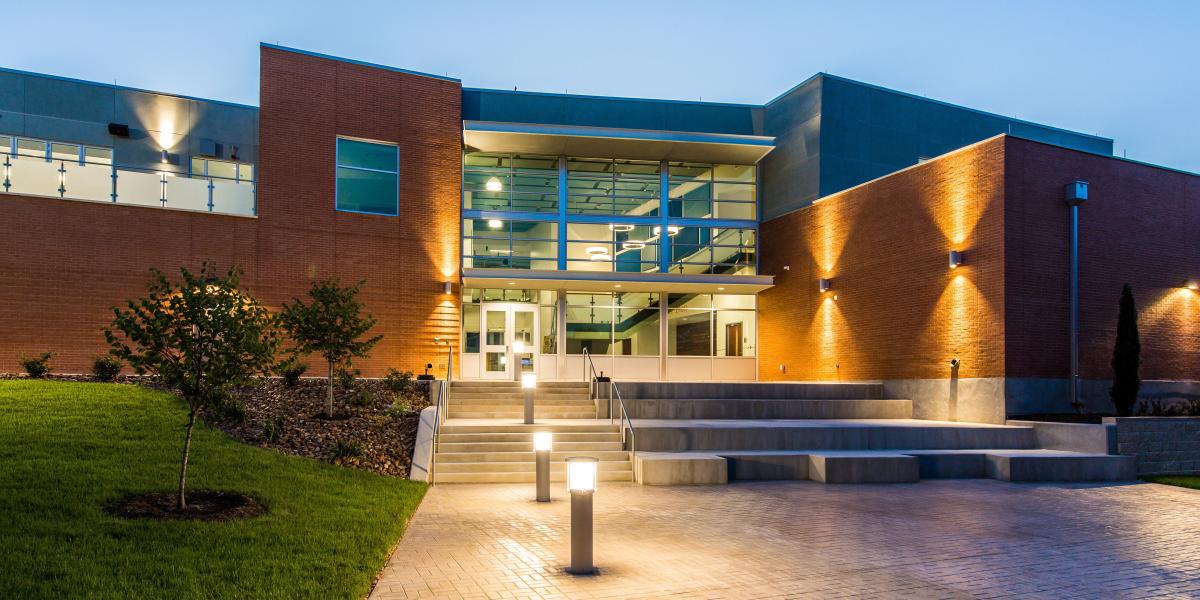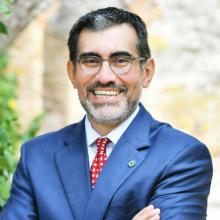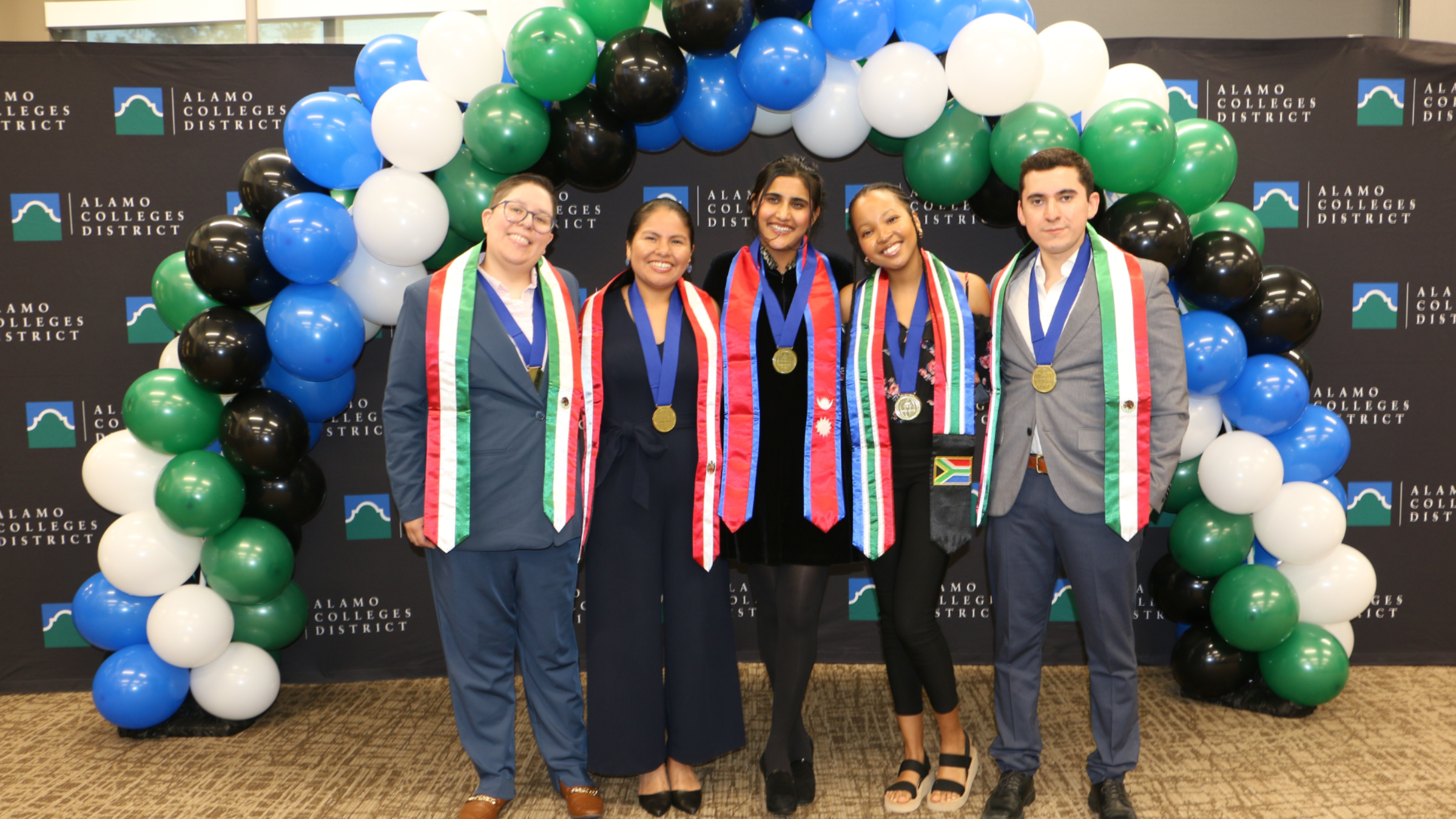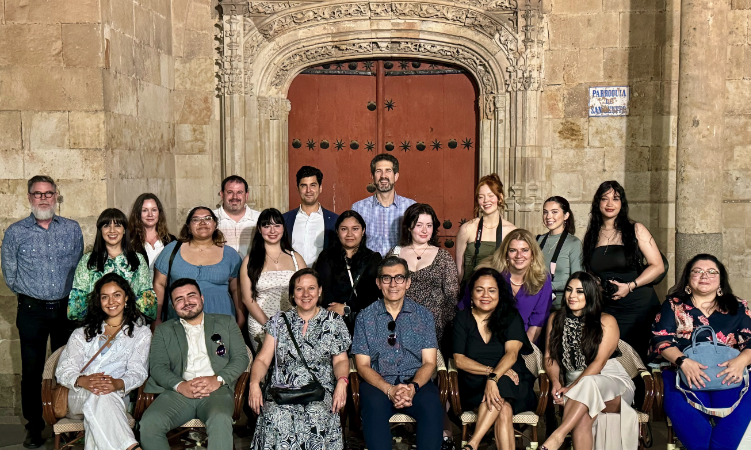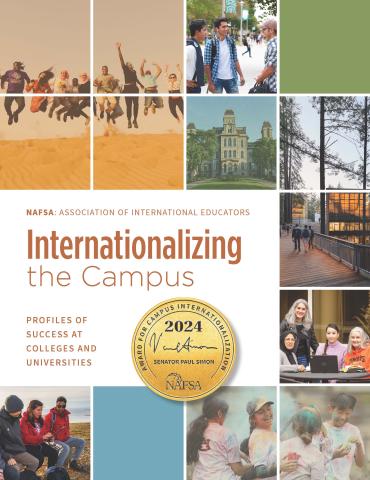Program Development and Delivery
2024 Spotlight Worcester Polytechnic Institute
Worcester Polytechnic Institute, a private research university in Worcester, Massachusetts, is renowned for its project-based learning model. These projects are a core part of the university's approach to education, which prepares students to tackle real-world problems through a combination of theory and practice. Students can choose to complete team research projects off campus at more than 50 project centers worldwide through the institution’s signature Global Projects Program. In 2017, the university launched Global Projects for All, an initiative aimed at growing participation in the program by boosting financial assistance and increasing the number of locations where students can complete projects.
In 2023, Worcester Polytechnic Institute (WPI) aerospace engineering major Melissa Kelly, chemical engineering major Faith Suwannapong, and mechanical engineering major Adam Giordani made the long trek to Melbourne, Australia, for a seven-week project focused on plastic bottle cap recycling. Working at the Ecological Justice Hub, a program run by the nonprofit Jesuit Social Services, they conducted research and data analysis on the program's needs, created an assembly line to process bottle caps, designed educational materials to encourage cap collection, and held hands-on workshops to teach the community how to use the bottle caps to create other plastic products such as plant pots.
“We left them with all of the materials that they need to not only make more products but to continue the workshop that we created,” Giordani says. “It was more rewarding when we got back. We were like, ‛Wow, we just made a difference on the other side of the globe.ʼ”
For Kelly, the project provided a valuable opportunity to apply her technical skills in a real-world setting. “A lot of the stuff we do is very technical, so getting to go out into the community felt really rewarding,” she says.
The three students were named winners of the Forum on Education Abroad's 2023 Award for Academic Achievement Abroad. The WPI student team was one of two that were honored for rigorous and meaningful academic projects completed during an education abroad program.
A lot of the stuff we do is very technical, so getting to go out into the community felt really rewarding. —Student Melissa Kelly
Over the last 25 years, WPI students have completed 270 projects with more than 50 organizations in the Melbourne area as part of WPI's Global Projects Program (GPP). Projects at the WPI Melbourne Project Center have addressed issues ranging from improving emergency response to wildfires by mapping vulnerable areas to developing solutions for plastic waste. The longevity of the project center and the impact of the work that students have done in the state of Victoria point to the importance of the GPP for both students and host locations—and underscore why WPI has sought to expand access to the program to all of its students.
Celebrating 50 Years of Global Projects
As a leader in project-based learning, WPI encourages students to apply their education outside of the classroom and develop solutions for authentic, open-ended problems. Many undergraduate courses at the university have a project component. Additionally, all undergraduates must complete three collaborative academic projects to graduate: one within their major; another at the intersection of science, technology, and society; and a seminar or practicum in a chosen focus area in the humanities or the arts. Students can choose to complete these collaborative projects close to campus or farther afield, through the GPP.
The GPP—for which WPI won its first Senator Paul Simon Spotlight Award in 2003—has been a core part of the undergraduate curriculum for 50 years. The program's first project center was established in Washington, D.C., in 1974, and since then, the GPP has expanded across the world to more than 50 locations. The Global School, which comprises the Global Experience Office (GEO) and the Department of Integrative and Global Studies, collaborates with the three other schools on campus to manage the program, which has had more than 17,400 participants as of 2024.
The Global School is also responsible for recruiting, training, and supporting the 100+ faculty members who advise at project centers each year. Two faculty members typically accompany 24 students to a project site for seven weeks of full-time work.
Expanding Access to the GPP
Approximately 85 percent of WPI students now participate in the GPP, thanks in part to the Global Projects for All initiative, which was launched in 2017 as part of WPI's strategic plan and for which WPI was awarded its second Senator Paul Simon Spotlight Award in 2024. The initiative seeks to grow participation in the GPP by removing financial barriers and increasing the number of global projects on which students can collaborate.
“We're doing something that's so distinct from our peers as a STEM institution that requires all of our students to be trained in social science research methods, in addition to the core of their technical program, and aims for everybody to participate in a global program,” says Kathleen Head, director of the GEO.
As part of the Global Projects for All initiative’s focus on scaling up the GPP, WPI has increased the capacity of its project centers and the number of faculty supporting off-campus advising and project work, says Kent Rissmiller, associate dean of the Global School. The university has also developed an in-house algorithm and “decision support tool,” which combines input from students and project center directors to evaluate mutual compatibility and generate student placements.
In order to defray the cost of participating in the GPP, WPI also established the Global Scholarship as part of Global Projects for All. The scholarship—which provides up to $5,000 to every undergraduate student and began with the class of 2022—is funded through internal operating budget support and a variety of fundraising efforts, including gifts and endowed funds.
We are working all the time on new ways to expand accessibility, diversity, and inclusion in our off-campus programs so that all students can benefit from real-world, project-based learning. —Global School Dean Mimi Sheller
Last year, WPI secured a grant from the Institute of International Education’s American Passport Project to help pay for passports for students who don't already have them. This year, WPI was awarded an Increase and Diversify Education Abroad for U.S. Students (IDEAS) grant from the U.S. Department of State to support students with disabilities in the GPP and improve accessibility at WPI's project centers. “We are working all the time on new ways to expand accessibility, diversity, and inclusion in our off-campus programs so that all students can benefit from real-world, project-based learning,” says Mimi Sheller, dean of the Global School.
As part of its efforts to ensure student success in the GPP, the GEO prepares students before departure and collaborates with the Office of Accessibility Services and the Office of Diversity, Inclusion, and Multicultural Education to support students with disabilities and diverse identities. “Intercultural communication begins at home, including through our support for equitable and effective teamwork, and continues to grow as our students expand their horizons through off-campus research in diverse locations,” Sheller adds.
WPI also requires students to take a mandatory social science research course taught by faculty within the Global School before they travel to their GPP project center. They learn research methods, conduct initial background research, identify a scope of work, and learn about their project site.
Measuring Impact
The GPP's impact is evident in student outcomes, including improved teamwork and problem-solving abilities. In a 2021 survey of WPI alumni, most of those who participated in one or more global projects reported various positive impacts. Nine out of 10 respondents, for example, reported that the program enhanced their ability to view issues from different perspectives and that they felt their project work contributed to their ability to function in the real world.
Students' participation in a wide range of project- based learning experiences supports WPI’s mission to transform lives, turn knowledge into action to confront global challenges, and revolutionize STEM education through distinctive and inclusive local and global projects.
“Our off-campus project experiences immerse students in diverse cultures and work in interdisciplinary teams to tackle complex real-world problems,” Sheller says. “When students have opportunities to apply their knowledge out in the world, they develop new perspectives, become well equipped to lead, and are meaningfully enriched, personally and professionally.
2024 Spotlight Syracuse University
Syracuse University, founded in 1870, is a private research university in the heart of New York State. With a student body of more than 22,000, including 15,000 undergraduates, the university has a long history of welcoming international students to its campus. The College of Arts and Sciences and the Maxwell School of Citizenship and Public Affairs collectively enroll around 5,000 undergraduates, and approximately 20 percent of those students are international, hailing from more than 60 countries. The schools’ International Student Success Model represents an innovative approach to advising international undergraduate students that provides them with proactive, holistic support as well as intercultural training for the staff who work with these students.
When Steven W. Schaffling, assistant dean of student success for the College of Arts and Sciences (CAS) and the Maxwell School of Citizenship and Public Affairs, joined Syracuse University in 2018, he recognized that there was a gap in academic support for the schools’ growing international population. He saw that retention rates for international students were lower than for their domestic peers, particularly in the critical first year of studies.
Schaffling explains that, typically, an undergraduate student's first-semester GPA is the most heavily weighted factor in predicting one-year retention rates. However, at his previous institution, he found that international students would have lower GPAs at the end of their first term, but these students’ academic performance would then rebound at a higher-than-average rate in their second academic term.
Schaffling says that these rebound rates indicate that international students’ low first-semester GPAs aren't the result of a lack of academic ability but rather a lack of holistic advising that also addresses issues such as cultural adjustment. “What that was telling me was that the transition in the first term was offsetting them from where their true capacity was,” he says.
To bridge the gap in support, Schaffling wanted to create a position outside of the international office that was situated within academic and career advising for CAS and Maxwell. Syracuse’s overall approach to advising is deeply integrated, he says, with academic and career guidance embedded in the academic units.
In 2020, the university hired Ling LeBeau as its first-ever director of international student success. LeBeau's role has two key components. First, she works directly with Schaffling and the advising office for CAS and Maxwell to create and implement strategic programming to engage the international population, with a focus on first-year undergraduate students. Second, LeBeau is responsible for developing the intercultural competencies of the 24 academic and career advisers within CAS and Maxwell so they can better support international students.
“Understanding the cultural norms really helped us inform how we could better advise [international students] academically and careerwise,” says Elena M. Paolini Williams, director of first-year advising in CAS and Maxwell.
Fostering Peer Connections and Academic Interventions
To address the unique challenges faced by international students, LeBeau developed the International Student Success Model, which has five core pillars: prearrival academic coaching, peer mentoring, adviser training, academic intervention, and targeted communication. The program begins before new international students even set foot on campus, with a self-paced online course that familiarizes them with academic expectations and available resources.
Once on campus, each new international student is paired with a peer mentor—a returning student who can be either a domestic student or a fellow international student. The mentor provides guidance and support during the first year. By structuring the peer-mentoring program with a defined syllabus and learning outcomes, the university has been able to maximize its impact, Schaffling says.
Ines Harouchi, a third-year student from Morocco, is one of these peer mentors. She recalls how valuable it was to have someone she could easily reach out to with questions when she was a new international student: “It was nice to know that there was someone I could talk to if I was homesick or if I needed help with anything academically.”
LeBeau's research has found a significant difference in the GPAs of students who are actively engaged with a peer mentor versus those who are not, underscoring the impact of the program. The university takes a data-driven approach to the student success model, soliciting student feedback and tracking the peer-mentoring program annually to identify areas for improvement. “We let those assessments drive where we should focus and what we should do differently,” Schaffling says.
In fall 2022, the retention rate for international students in CAS and Maxwell reached 91.5 percent—the highest since 2010.
Peer mentoring is one way that Syracuse cultivates a sense of belonging for international students. Another is creating ways for students to connect and share their questions, ideas, and doubts. To that end, LeBeau has created communication channels to help foster a sense of community, such as a weekly international student newsletter and social media groups on platforms like WeChat, WhatsApp, Instagram, and Facebook.
Students don't know what they don't know. You need to ask questions because students otherwise don't know you can help them with that. —Director of International Student Success Ling LeBeau
LeBeau has also provided training to academic and career advisers and graduate teaching assistants, particularly in departments with large international student enrollments, in order to enhance their intercultural competence. For example, she led a workshop with the Center for Teaching and Learning for graduate students and faculty in the Department of Biology to discuss strategies for effectively communicating with and supporting international students in the classroom.
Part of LeBeau’s approach is “intrusive” advising. “Students don't know what they don't know,” she says. “You need to ask questions because students otherwise don't know you can help them with that.”
Building a Community of Practice
While piloting the International Student Success Model at Syracuse, LeBeau saw the opportunity— and need—to share her experiences more widely. As a longtime NAFSA member and a volunteer leader in the International Education Leadership and Teaching, Learning, and Scholarship Knowledge Communities, LeBeau recognized the importance of engaging with professional associations to expand the reach of Syracuse’s model to other institutions.
She and Schaffling turned to the National Academic Advising Association (NACADA), identifying a gap in support for international students within the organization's 37 advising communities. Working with NACADA, LeBeau proposed establishing an official International Student Success Advising Community. To build her case, she conducted a global survey of academic advisers, which found that 96 percent of respondents had an urgent need for professional development opportunities around advising international students. After looking at these data, NACADA's board of directors approved the new community in March 2023.
We're really proud of what we've built here. And we're excited to see how it can benefit even more students in the years to come. —Assistant Dean of Student Success Steve Schaffling
Peer institutions have already reached out to learn more about Syracuse’s model after LeBeau published an essay about the university’s approach in NACADA's Academic Advising Today publication. “We really see this as the beginning of the model's impact on institutions elsewhere,” she says.
The effects of the model have also been felt across the university. During Syracuse’s recent academic strategic planning process, a working group of faculty and staff recommended encouraging the rest of the university’s schools and colleges to develop their own integrated strategies and staff to support international student academic success.
Schaffling sees promise in the signs of success that have emerged from the unique positioning of the International Student Success Model within the academic advising office for CAS and Maxwell. “We're really proud of what we've built here,” he says. “And we're excited to see how it can benefit even more students in the years to come.”
2024 Spotlight Oklahoma State University
Oklahoma State University, located in Stillwater, Oklahoma, serves nearly 25,000 students across five campuses. In 2021, the university exemplified its commitment to public service as a land-grant institution by establishing a program to aid Afghan refugees resettling in Oklahoma. The Afghan Family Project provides English-language programs, cultural programming, and wraparound support as refugees rebuild their lives in a new country.
When Afghan refugees started arriving in Tulsa, Oklahoma, in late 2021 after the U.S. military withdrew from Afghanistan, Randy Kluver, associate provost and dean of OSU Global, recognized a need—and an opportunity—for the institution to support the state's resettlement efforts. Oklahoma State University (OSU) had empty family housing units on campus due to the COVID-19 pandemic, and Kluver realized the university had the ability to welcome Afghans and fulfill its responsibility of addressing pressing social issues in Oklahoma.
“As a land-grant university, part of our mission is to serve the state,” Kluver says. “Moving Afghan families to Stillwater was an attempt to create additional resettlement capacity.”
OSU's English Language and Intercultural Center (ELIC) became the hub of a program that was created to help integrate the new arrivals into the community: the Afghan Family Project.
During 2021–22, two OSU faculty, Stephanie Link and Michael Amory, directed the center, taking on the majority of the project planning and initial resettlement efforts. By January 2022, the refugees started arriving on campus. In total, the university welcomed 72 Afghans—around 20 families—to Stillwater, which has a population of about 50,000.
The ELIC has worked to offer English-language classes tailored to the specific needs of the group. While Emily Boersma—who took over as the ELIC director in August 2022—and her team started with beginner, intermediate, and advanced English-language classes, they soon realized they needed to further divide the classes to accommodate different demographics and learning styles. They created separate classes for men and women, stay-at-home moms, and different first- language groups. They even offered courses at home for those who were not comfortable in a traditional classroom setting.
As a land-grant university, part of our mission is to serve the state. —Associate Provost and OSU Global Dean Randy Kluver
In addition to providing English-language instruction, the ELIC offers cultural support and programming. It also employs several of the refugees who are enrolled at OSU, such as Zhina and Bareen, to assist with the resettlement project. (Editor’s note: Zhina and Bareen requested that their last names not be used in order to protect their identities.) These students serve as translators and cultural liaisons, bridging the gap between the Afghan families and the university community. The university also hired an Afghan program coordinator using funding from the Oklahoma Department of Human Services.
Zhina, who is completing a master's degree in global studies and works as a graduate assistant at the ELIC, helps coordinate cultural excursions and events for the Afghan families. These events, such as multicultural nights and Eid celebrations, bring the Afghan community together and provide a sense of social support.
Providing Wraparound Support
Beyond offering cultural and social support to the refugees, OSU Global collaborated with Oklahoma Human Services to secure funding for wraparound services. The initial six-month grant that it received from the department has been renewed twice, and OSU Global is currently securing an additional year of funding. Two case managers, Terri Hollarn and Joani Whitley, have been hired with this funding to assist refugees with accessing medical care, finding employment, and utilizing other services.
Whitley uses her counseling background to address psychological issues associated with resettlement, though providing mental health support through interpreters remains a challenge. “We've utilized telephone-based translation services to try to connect Afghans with counseling, but the language barrier and cultural stigma around seeking psychological help have made it difficult,” Boersma says.
In addition to these critical services, the university has sought to facilitate the refugees' access to higher education. OSU raised $100,000 for an emergency scholarship fund in collaboration with the university’s foundation and worked with the state of Oklahoma to grant access to in-state tuition to the resettled Afghans. (The Oklahoma State Regents for Higher Education have since made in-state tuition available at every public institution in the state to any student impacted by war.) The university also funds graduate assistantships that include tuition waivers for admitted Afghans who pursue graduate studies at OSU, Kluver says.
An Outpouring of Community Support
Local partners, including Stillwater Public Schools, the Islamic Society of Stillwater, and Catholic Charities of Eastern Oklahoma, have also provided critical support to the refugees. Volunteers have donated essential household items, facilitated English conversation practice, and helped Afghans with tasks like learning to drive.
“The outpouring of support from the community is what made this project successful,” reflects Boersma. “Local churches offered over $100,000 in financial assistance, which allowed us to provide expensive dental care that wasn't covered by benefits.”
For Zhina and Bareen, OSU's comprehensive support has helped them navigate life in a new country.
“When I arrived in Stillwater, I was suffering from a lot of problems, such as the trauma of leaving my loved ones. I didn't know what the next step would be,” Bareen says. “From the beginning, OSU welcomed us by providing an apartment with everything we needed. They are not just providing for our needs but supporting us in the best way.”
Zhina especially appreciates the social support. “OSU provided events to bring Afghan families together, not just in Stillwater but from places like Oklahoma City. We had multicultural nights and celebrated Eid together,” she says.
Expanding Support to Other Groups
Boersma says the focus of the program has now shifted away from crisis management. The ELIC is offering TOEFL preparation courses as more of the Afghans seek admission to OSU. Of the original 72 refugees, 30 have left the Stillwater area, mostly for family reunification elsewhere in the United States or to pursue work in larger cities, such as Tulsa.
Those remaining largely see Stillwater as their new home and have started looking for more permanent housing. Some refugees have been able to remain on campus after their initial year of rent—which was paid for by a community partner—ran out, either by studying or working at the university. OSU also still provides some campus housing support, with two campus housing units earmarked for refugee families. Other refugees are integrating further into the Stillwater area. One family purchased a home, while others are renting in the community.
“It's just been incredibly rewarding to watch these families settle in and start their lives over. The strength and resilience they've shown is amazing,” reflects Boersma.
OSU plans to continue welcoming Afghans and hopes to expand services to refugees of other backgrounds. “Opening our doors to these newcomers wasn't something universities typically do at this scale,” Kluver says. “But it has been a powerful example of mobilizing our resources to address a pressing human need in our state.”
2024 Comprehensive University of California, Santa Cruz
The University of California, Santa Cruz, a public research university serving more than 19,000 undergraduate and graduate students—including more than 1,500 international students—has made significant strides in expanding global learning opportunities, fostering international research collaborations, and creating a more inclusive, globally engaged campus community. Through innovative programs, strategic partnerships, and a commitment to access and equity, the university has emerged as a leader in comprehensive internationalization.
Although the University of California, Santa Cruz (UC Santa Cruz) has long been involved in international research and engagement, its comprehensive approach to internationalizing the campus emerged in the last two decades. In the early 2010s, the university implemented a new strategy to increase its international student population and enhance global diversity. International student enrollment grew from just 140 in 2013 to more than 1,500 in 2019.
The growth resulting from UC Santa Cruz’s success in enhancing international student recruitment and enrollment came with challenges. “Faculty identified the need for support services to be in place for these students,” says Becky George, assistant vice provost of global engagement.
To help lead a coordinated approach to its internationalization efforts, the university hired George as senior international officer in 2015. The next year, UC Santa Cruz established a new unit on campus—the Division of Global Engagement—which now includes Global Learning, International Student and Scholar Services, International Programs, and Global Initiatives.
The division quickly developed infrastructure and support services, increasing the number of international student advisers, developing robust orientation and ongoing programming, and creating academic support, such as a writing center. These efforts also included launching the Graduate Preparation Program, which provides intensive academic English instruction and cultural orientation for international graduate teaching assistants.
Serving as a hub for campus internationalization since its founding, Global Engagement has grown from a small team of eight to a robust staff of 26 who work to amplify UC Santa Cruz’s international efforts and promote its reputation as a global research university.
Developing a Strategic Plan for Internationalization
In addition to establishing the Division of Global Engagement, university leadership has spearheaded other campuswide internationalization endeavors. In 2018, the university joined the American Council on Education's Internationalization Lab, embarking on a two-year process to develop a strategic plan for internationalization. George says the initiative engaged faculty, staff, and students across campus through a series of listening sessions with 35 academic departments and town hall meetings open to the entire campus community. The resulting plan outlines five broad goals: expand and enhance globally focused research and engagement, provide global learning opportunities for all, strengthen student success, enhance the university’s global reputation, and define organizational structure.
The plan includes measurable objectives and a five-year implementation timeline that provides a map for advancing comprehensive internationalization across campus. Implementation progress is assessed annually and shared with the campus community through the Global Engagement website, an annual report, and a quarterly newsletter.
“To be able to have our students and our faculty and staff really be engaged global citizens and be able to be effective collaborators to address these enormous challenges we face in the world, we need to have a more global perspective,” says Chancellor Cynthia Larive.
Expanding Global Learning Opportunities
The University of California (UC) System has offered study abroad opportunities since 1962 through the systemwide UC Education Abroad Program, drawing students from all nine undergraduate campuses across the state. However, university leadership recognized that it was necessary to create a portfolio of global learning opportunities that catered specifically to the needs of UC Santa Cruz students through the development of new partnerships abroad. “Our portfolio has now grown to provide so many opportunities for students—from traditional study abroad opportunities through our exchange program and opportunities to develop career pathways through Global Internship programs,” says Alice Michel, who is executive director of global mobility and oversees global learning and international services staff.
Faculty-led Global Seminars offer unique study abroad experiences tied to faculty research interests and include experiential learning components. “Students often feel more comfortable going abroad for the first time with faculty they know,” says Kent Eaton, a professor of politics and chair of the university’s Committee on International Education (CIE).
The committee includes faculty representatives from different disciplines as well as students and advises the faculty senate and university leadership on issues such as the allocation of resources for international education and the welfare of international students at UC Santa Cruz. The CIE also plays a key role in reviewing proposals and providing guidance for new faculty-led study abroad programs. “We want to see faculty committed to doing it two or three times, precisely because there's so much work involved,” Eaton says.
Considering changing student needs has led to the development of another experiential international initiative requiring cross-campus, interdepartmental collaboration: Global Internships. Launched in 2021, the initiative aligns with students' growing interest in credit-bearing internships that offer practical work experience, George says. Over the first three years, 115 students enrolled in the program, with internship destinations including Argentina, Chile, Ireland, Portugal, South Africa, and Spain. In 2024, more than 60 students will participate, and UC Santa Cruz expects enrollment to increase to more than 100 students in 2025.
Our portfolio has now grown to provide so many opportunities for students. —Executive Director of Global Mobility Alice Michel
The program is designed in close collaboration with academic departments to modify existing internship courses for an international setting, ensuring that students can fulfill major or elective credit requirements. Participants also benefit from the guidance of a UC Santa Cruz faculty mentor who regularly checks in throughout the internship, working closely with the host organization abroad.
UC Santa Cruz’s efforts to expand education abroad opportunities for its students have also led it to become the only UC campus that has developed a large portfolio of bilateral exchanges at the institutional level, George says. The institution established its first program of this kind in 2017 through faculty connections in the Film and Digital Media Department with colleagues at the University of Sussex in the United Kingdom. Since then, the university has focused on expanding bilateral exchanges, growing to 23 programs in just six years.
In addition to sending more students abroad, UC Santa Cruz has focused on developing global opportunities closer to home, for both domestic students unable to participate in programs requiring international mobility as well as international students who want to get a taste of life at the university. Virtual exchange has become a cornerstone of UC Santa Cruz’s internationalization efforts. The university’s Global Classrooms initiative, based on the Collaborative Online International Learning (COIL) model, has rapidly expanded since its launch in 2020. Twenty courses have been delivered across 14 departments, engaging 483 students in collaborative online learning with international partners. These virtual exchanges are designed to foster global competencies—such as cross-cultural communication, teamwork, and digital literacy—which are increasingly valuable in today's interconnected world.
UC Santa Cruz also launched the International Summer Research Program in 2021, bringing international undergraduates to campus for noncredit-bearing summer research experiences in faculty labs. This program gives students a chance to get out of the rhythm of their typical coursework and enjoy diving deep into research, working with their host faculty and graduate student researchers. As many of the participants in this program are considering graduate studies in the United States, they are attracted to the opportunity to gain research experience in a U.S. context and learn how a research lab operates at an R1 university.
Increasing Access to Global Learning
As an R1 university that is also designated as a Hispanic-Serving Institution and an Asian American and Native American Pacific Islander-Serving Institution, UC Santa Cruz remains focused on developing international programs that increase equity and access to global learning opportunities. With an increasing international population and more domestic students going abroad, the university is proactively mapping current and future staffing needs to meet the evolving demands of its global programs and diverse student populations and ensure the sustainability of its strategic internationalization.
Consequently, internationalizing the curriculum has been a key focus of UC Santa Cruz's efforts. In 2010, the Academic Senate, which is the main body for faculty governance at the university, revised the general education requirements to include a five-credit course in cross-cultural analysis for all undergraduate students. More than 300 courses across 27 departments now fulfill this requirement. A preliminary analysis conducted in 2023 shows that students who take these courses in their first two years of study are more likely to study abroad compared with those who take them later in their academic careers.
Additionally, the university has introduced new interdisciplinary majors and minors with a strong global focus, such as the global and community health major, which launched in fall 2022 and attracted 246 students in its first year.
The university is also in the process of developing strategic partnerships in key regions to foster multifaceted relationships that include faculty research collaborations and global learning experiences. Larive and George have traveled to India and Mexico to strengthen collaborations with partners there and establish new agreements around research, faculty involvement, and student mobility.
That's what global education is really about—letting students have the experience of learning in a context that is relevant to the curriculum that they're engaged with. —Chancellor Cynthia Larive
In July 2024, UC Santa Cruz hosted a joint faculty symposium with the Indian Institute of Technology Delhi and the Indian Institute of Technology Kanpur, bringing together 20 faculty members from the partner institutions to explore collaboration opportunities in artificial intelligence, machine learning, and cybersecurity. Larive says she sees these partnerships as crucial to the future of internationalization at UC Santa Cruz, enhancing global learning opportunities for all domestic students and attracting top international talent to the university's graduate programs.
UC Santa Cruz's overall internationalization efforts align closely with the university's current strategic plan, which was launched in 2023, particularly in regards to its focus on experiential learning. "The goal is to provide a lot of mobility to our students from the curriculum and education side but also adding to that the experiential education piece,” Larive says. “That's what global education is really about—letting students have the experience of learning in a context that is relevant to the curriculum that they're engaged with."
2024 Comprehensive Prairie View A&M University
Prairie View A&M University is a comprehensive, land-grant institution located in Prairie View, Texas, serving a diverse student body of more than 9,000 students. As an HBCU, the university is committed to providing underserved communities with the tools to succeed amid globalization. With a demonstrated dedication to internationalization, the institution has integrated global learning into its mission to prepare students to thrive in an interconnected world.
Prairie View A&M University (PVAMU) has a long history of embracing internationalization as a core component of its educational mission. Initial efforts included starting the Panthers Abroad Scholarship in 1995 to support study abroad efforts, with this global focus eventually leading to the establishment of the Office of International Programs (OIP) in 2016 to centralize and enhance global engagement efforts at the university. Since its inception, the OIP has spearheaded numerous initiatives aimed at increasing student and faculty participation in international activities, including study abroad programs, international partnerships, and curriculum internationalization.
Driving the university's commitment to internationalization is the recognition that global competencies are essential for success in today's interconnected world. This vision is reflected in PVAMU's mission statement, which emphasizes the importance of preparing students for globalization by creating programs and services that target issues affecting not only the diverse populations of the state of Texas but also those around the globe.
The OIP’s internationalization efforts are led by Godlove Fonjweng, senior international officer and executive director of international and intercultural programs. Fonjweng, a former international student from Cameroon, joined PVAMU in 2021, bringing a clear vision for advancing the university’s global agenda. "Our goal is to ensure that every PVAMU student is globally competent by the time they graduate," Fonjweng says.
A pivotal element of PVAMU's internationalization strategy has been its quality enhancement plan (QEP), which is titled Broadening Global Learning Opportunities Building Academic Leaders (B-GLOBAL) and focuses on developing global competencies in students. The QEP was developed out of previous internationalization efforts embedded in the university’s 2016 strategic plan and is tied to accreditation requirements.
Since 2021, the QEP has played a crucial role in integrating global perspectives into the undergraduate curriculum and creating much-needed resources for faculty development workshops and new cocurricular programs. It also has led to the creation of globally focused courses. "The QEP has provided a structured approach to embedding internationalization into our academic fabric," Fonjweng says.
Training Faculty to Support Global Learning
B-GLOBAL is designed to enhance students' global competencies during their first two years of study and includes first-year seminars, common reading experiences, field trips, and globally focused courses that fit within the university’s core curriculum or an academic major. Faculty receive special training to revise their courses to align with at least two of the four B-GLOBAL competencies: self-awareness, global awareness, cultural knowledge, and social responsibility. These courses are designed to help students understand global issues and their implications in various fields.
Students participating in B-GLOBAL offerings can also earn the Global Awareness and Leadership Certificate. The certificate was introduced in 2021 as part of the QEP to offer students a formal credential that recognizes their B-GLOBAL participation and achievements and showcases their global learning and leadership skills. Around 70 students have earned the certificate after completing a capstone project, which can include education abroad or undergraduate research.
"B-GLOBAL not only prepares students to engage with global issues but also enhances their overall academic experience," Fonjweng says.
Since 2021, more than 80 faculty members have earned the designation of “global faculty” as part of their training to produce B-GLOBAL courses, leading to the internationalization of more than 100 course sections. Faculty take six 90-minute virtual workshops focused on both content and pedagogy. They then present an annotated syllabus documenting where the B-GLOBAL competencies have been integrated into their course, says Nathan Mitchell, professor of political science and director of B-GLOBAL. Examples of these courses include English composition, global issues, green chemistry, introduction to humanities, intercultural communication, and police systems. PVAMU says that 7,000 students have taken at least one B-GLOBAL course, which are offered in each of the university’s colleges.
Internationalizing the curriculum allows students to see beyond their immediate environment and understand the broader global context. —Faculty member Tammy Holmes
Faculty members who revise their courses to include international content receive a $1,000 stipend for the first course they revise. They also participate in regular faculty symposiums, where they share creative teaching and research-based approaches used in their internationalized courses. This helps train new faculty and promotes a collaborative and innovative teaching environment.
Tammy Holmes, a faculty member in the Department of Languages and Communication, teaches courses such as Globalization and Media and participated in the first global faculty training cohort. Holmes has also taught several faculty-led study abroad programs, taking students to Belize, Brazil, Colombia, and Panama. She has used the B-GLOBAL faculty training to enhance courses she was already teaching and help students document their learning gains.
"Internationalizing the curriculum allows students to see beyond their immediate environment and understand the broader global context," Holmes says.
In addition to the B-GLOBAL course development training, PVAMU’s Office of the President encourages faculty internationalization efforts by sponsoring an annual award for global engagement, which recognizes outstanding contributions to the embedding of global perspectives in teaching.
Growing Study Abroad
As an HBCU, PVAMU is committed to creating education abroad opportunities for underserved groups, including Pell-eligible students, who compose about 65 percent of the student population.
PVAMU has significantly expanded its study abroad opportunities in recent years. In 2017, only 49 students participated in study abroad programs. In 2023, the university achieved its highest participation rate yet, with 182 students going abroad. These opportunities are supported by various scholarships and grants, ensuring that financial barriers do not impede students' ability to participate in study abroad. One specific grant is funded by an international education fee into which all students pay to support student travel. Several colleges also use student fees to offset the costs of study abroad.
It was eye opening to see the real-world applications of what we learned in class. —Student Phyllis Ntsoane
Examples of PVAMU's study abroad programs include a business-focused trip to the Bahamas, where students examine local economic practices and trade relationships, and an economics course in Mexico that explores rural and urban economic environments.
Phyllis Ntsoane, a senior majoring in business management, participated in the Bahamas program: "We visited local businesses, farms, and the U.S. Embassy, gaining a comprehensive understanding of the Bahamian economy. It was eye opening to see the real-world applications of what we learned in class."
The university also recognizes that for many of its students, passports may be unaffordable. Since 2017, PVAMU, with the OIP and grants from outside organizations such as the Council on International Educational Exchange, the Texas International Education Fund, and the Institute of International Education, has paid for passports for 1,000 students.
Supporting International Students
In addition to managing study abroad, the OIP provides comprehensive support for PVAMU’s 250 international students in order to create a welcoming environment on campus. These services include an international student orientation, immigration and academic advising, a conversation partners program, and an international coffee hour. PVAMU recognizes the importance of the cross-cultural perspectives that international students, especially those from African countries, bring to an HBCU. To this end, PVAMU signed a memorandum of understanding with Equatorial Guinea's Ministry of Mines and Hydrocarbons in fall 2020. Since then, 38 students from Equatorial Guinea have enrolled at PVAMU, fully funded by their government. These students have been involved in language-learning exchange opportunities with domestic students, providing the domestic students with the opportunity to practice Spanish with Black native speakers of the language. They also led on-campus humanitarian relief efforts after a tragic explosion rocked their home country in 2021. The students collected items from the community to send overseas, such as over-the-counter medicines, bedding, and clothes.
PVAMU's internationalization efforts extend beyond the campus, positively impacting the local community and supporting its land-grant mission. The university's agriculture faculty, for instance, host visiting international scholars and offer them tours of local extension farms. In addition to forging off-campus ties, by arranging these exchanges, PVAMU allows students to engage directly with global experts and learn about international agricultural practices. Additionally, PVAMU has organized trips for its international students to attend local community events, such as the Houston rodeo, helping them gain firsthand insight into U.S. culture.
"Our engagement with the local community and international scholars enriches the educational experience for everyone involved," Fonjweng says.
Expanding PVAMU's Global Reach
In order to facilitate global opportunities for individual faculty and students, PVAMU leadership has worked to foster collaborations at the institutional level. The university has entered partnerships with institutions and organizations to which faculty have taken students on study abroad programs, including in Africa, Asia, the Caribbean, Europe, and South America. Most recently, PVAMU leadership launched a partnership with London Metropolitan University, which has led to faculty and student exchanges. "We are developing innovative partnerships abroad to expand our global reach," Fonjweng explains.
PVAMU has also collaborated with the International Atomic Energy Agency and the U.S. Department of State to host international workshops and training programs. One notable initiative involved a three-week workshop on nuclear energy for scholars from 20 different African nations, aimed at integrating nuclear energy topics into STEM courses.
PVAMU plans to continue expanding its international programs and partnerships, increasing its study abroad participation, and further integrating global perspectives into the curriculum. Efforts include creating more opportunities for first-year study abroad experiences and incorporating the United Nations Sustainable Development Goals into freshman seminars and campuswide initiatives.
With the B-GLOBAL QEP scheduled to end in 2026, Fonjweng and his team are focused on sustaining and expanding the gains made through the plan. "We are integrating successful elements of the QEP into the broader institutional framework to ensure that our internationalization efforts continue to grow," Fonjweng says.
2024 Comprehensive Auburn University
Auburn University is Alabama’s largest public higher education institution. The land-grant university enrolls more than 33,000 students, 26,000 of whom are undergraduates. Auburn's strategic location and proximity to international companies has facilitated the development of partnerships that create opportunities for research and global learning. The university also has robust education opportunities outside of the United States—with more than 20 percent of its undergraduate students studying abroad—and currently hosts around 2,000 international students.
Auburn University's journey toward comprehensive internationalization began in 2009 with the creation of a faculty committee that recommended establishing a senior international officer position. The assistant provost for international programs role was created in 2010 to lead the Office of International Programs (OIP), which was founded after a reorganization.
Auburn furthered these efforts in 2018 by starting participation in the American Council on Education's Internationalization Lab, a two-year process that resulted in the university's first strategic internationalization plan. This document reflects input from 30 leaders spanning administration, faculty, and student services and aims to infuse global opportunities into all aspects of the Auburn experience, including transformative research, impactful service, exceptional and engaged faculty and staff, strategic enrollment, and operational excellence.
Provost Vini Nathan says that experiential education is at the core of what Auburn does. “That's what global education is really about—letting students have the experience of learning in a context that is relevant to the curriculum that they're engaged with,” says Nathan, who was an international student from India.
The OIP spearheads the university’s internationalization efforts, overseeing study abroad, international student and scholar services, internationalization-at-home initiatives, and global partnerships. The office fosters campuswide collaboration by convening the International Advisory Committee, which has representatives from each academic college. Half of Auburn’s 13 colleges have also created positions for full-time internationalization professionals, who serve on the advisory committee and act as a bridge between the OIP and the deans and faculties of their respective colleges. The OIP also convenes the International Student Advisory Group, which brings together leaders of international student organizations and campus stakeholders to address student needs.
Facilitating Global Learning for All
In addition to these broader strategic internationalization efforts, Auburn has focused on specific aspects of internationalization, such as programs to put international experiences within reach of all Auburn students, regardless of their financial ability to travel internationally.
The Global Teaching Academy, established in 2014, recognizes and promotes excellence in internationalized teaching. To date, more than 40 faculty members have been inducted into the academy, representing a wide range of disciplines, from engineering to the humanities. These faculty have worked to integrate global perspectives into their courses, impacting thousands of students.
Launched in 2023, the Global Medallion microcredential helps students develop global competencies through a personalized study plan. Participants take introductory and capstone courses, complete either a study abroad or domestic intercultural experience, and are evaluated using the Cultural Intelligence Assessment. Exit surveys have indicated that Medallion students choose to participate in the program to demonstrate global skills to future employers. Participants are inducted into the Phi Beta Delta Honor Society for International Scholars, with their membership paid for one year through course fees, giving them an international network of peers with whom they can connect while building their career paths.
Andrew Gillespie, assistant provost for international programs, says that Auburn is anticipating growth in Global Medallion participation as it starts to market the program to incoming first-year students when they arrive on campus for orientation.
Expanding Access to Education Abroad
While Auburn has invested in efforts to reach students who are not able to travel internationally, it is also focusing on increasing the number of education abroad opportunities and participants.
About 20 percent of Auburn undergraduate students engage in an education abroad experience before graduation, with 1,500 doing so in 2023. The university has set the goal of reaching 50 percent participation by 2035. To achieve this goal and increase access, Auburn launched a new funding model in 2023 that enables departments to propose programs that subsidize study abroad for students with financial need. In its first year, the funding assisted 78 students who wouldn't have been able to go abroad otherwise, says Jennifer Mason, director of international initiatives.
Due to the program's success, Nathan has committed additional funding and made study abroad assistance a fundraising priority. In summer 2024, for example, the College of Nursing used the new funding model to lower overall costs for 20 students in the Healthcare and Culture in London and Edinburgh program.
While the OIP provides central support and coordination, much of the education abroad work happens within Auburn's individual colleges and schools. The College of Architecture, Design, and Construction (CADC), for example, offers a wide array of study abroad options, including weeklong, short-term, and full-semester programs, according to Ben Farrow, associate dean for academic affairs and international programs.
Farrow also notes that the CADC has expanded its offerings beyond traditional classroom-based courses to include more hands-on opportunities, such as service learning and internships. For instance, for the past 12 years, students in building science have traveled to Ecuador to construct projects in partnership with local communities.
Developing Strategic Industry Partners
In addition to creating international opportunities for its students, Auburn has capitalized on global connections that already exist in Alabama. In the early 2000s, the state experienced a manufacturing renaissance as international companies, particularly in the automotive and aerospace industries, established operations there.
More than 60 Korean companies—including Hyundai and Kia—are now located within an hour's drive of campus, and Auburn has leveraged that proximity to create global opportunities for students and to support local economies. “We're filling a real need for the community and creating opportunities for our students by linking the classroom to careers,” says Gillespie.
The Auburn-Keimyung Korea Center—established in 2012 in collaboration with Keimyung University in Daegu, South Korea—offers language and cultural programming, serves as a hub for research collaboration and exchange programs, and engages with industry partners to support workforce development.
“Our center was established to bridge the cultural gaps between the Korean community and the campus community through language and culture, but we also help Korean industries address labor shortages and train Auburn students for future jobs, ” says Ellie Lee, director of the Korea Center.
For example, the center coordinates an exchange program between Auburn and the Convergence and Open Sharing System Future Automobiles Consortium, a group of seven Korean universities. The program aims to provide Korean students with academic instruction and professional experience in the U.S. automotive industry and has a unique program structure: Students spend their first semester taking courses at Auburn and complete an internship during their second semester.
We're filling a real need for the community and creating opportunities for our students by linking the classroom to careers. —Assistant Provost for International Programs Andrew Gillespie
The Korea Center also runs the Korean Studies and Culture summer study abroad program in Daegu and has an exchange program with Keimyung University, open to students of any major. In fall 2024, the center started recruiting domestic students for a Korean internship program.
Inspired by its Korean partnerships, in 2022, the university established a partnership with the Taiwanese government and the National Cheng Kung University (NCKU). Whereas the Korea Center focuses on partnerships with industry, due to Auburn's proximity to several military bases, the Auburn-NCKU Taiwan Center of Chinese Language and Culture addresses the critical need for Mandarin-language training within the U.S. armed forces. Auburn is currently exploring additional centers focused on other strategic countries and regions, such as Japan and the Middle East.
Preparing Students to Succeed in an Interconnected World
The Korea and Taiwan centers are also helping strengthen overseas alumni ties. Auburn has a very active alumni community in Taiwan, and some of its members participate in the Alumni International Mentoring Program. That initiative pairs students interested in global careers with alumni living abroad for a one-year virtual mentorship.
The program has led to actual job placements, Mason says. “It’s an amazing experience for students to seamlessly transition into an international career because they had the support of an alum,” she adds.
As Auburn finalizes its 2035 strategic plan, internationalization remains a top priority. Future initiatives include convening a campuswide committee to review the university’s core curriculum. As part of that committee’s efforts, it will define “global literacy” and incorporate it into the core curriculum as a fundamental skill. “We are committed to providing transformative global experiences for all students,” Nathan says. “Our new strategic plan will outline ambitious goals and initiatives to further enhance our international partnerships, expand access to study abroad, and integrate global perspectives across the curriculum. We want every Auburn graduate to be prepared to succeed in an increasingly interconnected world.”
2024 Comprehensive Alamo Colleges District
The Alamo Colleges District, a system of five independently accredited community colleges with more than 70,000 students in San Antonio, Texas, is committed to serving its diverse student population by making global citizenship a key part of its mission. To do so, the district has strategically expanded international learning opportunities, cultivated a culture of multicultural engagement, and created ways for students to develop global competencies.
The Office of International Programs (OIP), which serves all five community colleges in the Alamo Colleges District (ACD), was established in 1995 to provide the district with international programs. In the 2000s, the OIP centralized support for faculty-led study abroad and started working with international partners to offer economic and workforce development and technical training. The district began heavily engaging with institutions in Mexico, hosting groups of faculty and students for short-term training and development programs.
The ACD has also welcomed international students on its campuses for decades, dating back to the 1970s at San Antonio College. However, it was not until 2009 that significant investment in international student recruitment began in earnest, when the district hired a coordinator to oversee these efforts. Since the COVID- 19 pandemic, the ACD has worked to regain momentum in this area, increasing international student enrollment by 40 percent from 2022–23 to 2023–24, representing almost 50 new international students across all five colleges, for a total international student population of 187. In 2019, Chancellor Mike Flores significantly shifted the district's approach to comprehensive internationalization. The OIP began centrally coordinating internationalization activities for the five colleges, with a strategic focus on developing global competencies.
“Like most community colleges around the United States, Alamo Colleges District is shaped by its local community's educational and workforce needs. As San Antonio continues to grow and evolve, the district responds to those needs by recognizing the need to compete in a global economy,” Flores says. “Internationalization is paramount in growing a strong and sustainable workforce that prepares them for the challenges of an interconnected world.”
Rather than the individual colleges managing global efforts in isolation, the OIP serves as the hub for that work, collaborating closely with leadership across all five campuses. According to the ACD, centralizing internationalization at the district level ensures consistency and equity in global learning opportunities for all students, regardless of which college they attend.
One way that the OIP achieves this consistency is by working with the International Executive Advisory Committee (IEAC), which brings together campus leadership—including the presidents of all five ACD colleges—senior administrators from the district office, faculty, and external community partners, such as the local chamber of commerce and the Mexican Consulate. The IEAC convenes twice per year to review progress on internationalization efforts, identify new opportunities, and provide guidance to the OIP.
Internationalization is paramount in growing a strong and sustainable workforce that prepares them for the challenges of an interconnected world.—Chancellor Mike Flores
In addition to the IEAC, the ACD has an International Faculty Committee that meets monthly. This group of 40–45 faculty members from across the five colleges shares best practices, discusses global learning programs, and helps identify potential international partners for collaboration. The district also has a Working Group for Curriculum Internationalization that oversees the process for reviewing and approving globally focused courses, ensuring the curriculum aligns with the district's strategic objectives for developing global competencies.
By convening these groups, managing their meetings, and following up on action items, the OIP converts discussions on internationalization efforts into concrete action.
Developing a Global Competency Framework
At the heart of the ACD’s internationalization efforts are the nine Alamo Global Competencies, which fall under three broad categories: global awareness, global engagement, and global perspective. The development of the competency framework involved extensive research and campus engagement, including focus groups with students, faculty, and staff across the district’s five colleges.
The ACD also engaged in discussions with peers from Valencia College, Ivy Tech Community College, and World View, a public service program at the University of North Carolina at Chapel Hill, to inform the initial framing of the competencies. Additionally, the OIP consulted with local industry leaders like Toyota and H-E-B, a grocery store chain, to understand the global skills required by employers. “As this team engaged the private sector in looking at those global competencies from different areas, it helped us understand what the private sector needed,” says Reynaldo Cano, coordinator of special projects for international programs.
The Alamo Global Competencies framework is now embedded across various programs, including Global Learning Designated Courses (GLDC), study abroad programs, and virtual exchanges. There are 34 GLDC courses—representing 58 sections—taught across the five colleges and in three different modalities: face to face, online, and hybrid.
Students enrolled in GLDCs are automatically enrolled in the Alamo Global Student Distinction (AGS) program. This initiative provides students with support and guidance to develop global skills and mindsets inside and outside the classroom and recognizes their acquisition of global competencies on an official cocurricular transcript.
Students progress in the AGS by earning “miles,” which they can accumulate a number of ways, such as by completing a GLDC, doing a virtual exchange, going on a study abroad program, or partaking in multicultural activities on campus. An example of the latter is the Global Engagement Network for International Education, an initiative to foster cross-cultural connections and mutual understanding between international and domestic students across the district. It consists of peer group cohorts and multicultural programming such as cross-cultural workshops and activities during International Education Week.
The miles act as a point system; depending on the number of miles they accumulate throughout their ACD education, students can graduate with different levels of distinction: Global Citizen, Global Diplomat, or Global Ambassador. From fall 2022, when the AGS began, to the close of summer 2024, 3,531 students—5 percent of the district’s total enrollment— have participated in the program, with 86 students earning one of the associated distinctions at graduation. This represents a rapid expansion of global learning participation in the district, as only 100 students (0.14 percent of the ACD’s student population) were involved in these efforts in 2019.
By empowering our students with global competence through digital badges for specific skills, we are simultaneously responding to the needs of our students and our community. —Chancellor Mike Flores
The Alamo Global Learner Pathway is another program based on the district’s global competencies that offers a wide range of opportunities for participation. This flexible program allows students to earn digital badges through an online credentialing system integrated with the Canvas learning management system. It enables students to showcase the global competencies they have developed virtually and on their transcripts. Since its inception, the program has awarded more than 800 digital badges.
“From a human capital point of view, our digital badges and microcredentialing programs respond to the needs of local businesses to design programs that address the importance of soft skills,” says Flores. “By empowering our students with global competence through digital badges for specific skills, we are simultaneously responding to the needs of our students and our community.”
Another districtwide initiative tied to the district’s competencies is the annual Alamo Global Challenge. Students are invited to submit an essay on a competency-related theme, which was “Nurturing Compassion and Fostering Peace in an Interconnected World” in 2024. This year, one student from each of the five colleges received a scholarship to attend the Hispanic Association of Colleges and Universities International Conference, held in Salamanca, Spain, in June.
Expanding Global Learning Through Faculty Training
To support faculty in integrating the Alamo Global Competencies into the curriculum, the OIP offers two training options for internationalizing a course: a four- hour intensive in-person workshop or a self-directed asynchronous online course. Faculty who successfully complete either training can apply for their course to be designated as a GLDC. The current GLDCs span a range of disciplines, including art history, an introduction to the humanities, and STEM classes. In collaboration with the ACD Faculty Development Division team, the OIP has provided curriculum internationalization training to more than 92 faculty members throughout the district.
The ACD also offers training for faculty to develop and lead study abroad programs. In 2018, in collaboration with Faculty Development, the OIP developed study abroad workshop materials that are accessible through a Canvas course throughout the year. The course supports faculty as they work on education abroad proposals, which the district invites them to submit every spring. The OIP also oversees program development, marketing, application processing, risk management, funding, scholarships, and course enrollment for all education abroad programs.
In addition to traditional study abroad options, virtual exchanges, known as Collaborative Online International Learning (COIL), were implemented at the ACD in 2021 with six faculty members. To date, 44 faculty across the five colleges have been trained to implement COIL, and 337 students have participated in virtual exchanges. In October 2023, the district collaborated with Florida International University (FIU) to train a special cohort of 15 ACD faculty, who conducted virtual exchanges with international partners.
Embracing the Future of Internationalization
The ACD is committed to further enhancing its internationalization efforts. Its two primary goals moving forward are to expand its internationalization-at-home programming and increase study abroad opportunities. It plans to leverage the success of current initiatives to foster an even more globally engaged student body.
The district is also focused on enhancing faculty development programs to support additional integration of global learning into the curriculum. This includes developing in-house training for COIL courses and expanding partnerships with institutions like FIU to add more virtual exchanges. In addition, the ACD aims to improve data collection and utilization to inform decision-making and measure the impact of its internationalization strategies.
“Our passion drives us to continuously improve our successful global learning opportunities,” Flores says. “By designing new initiatives for internationalization at home, like Global Learning Designated Courses, COIL virtual exchanges, study abroad opportunities, strategic institutional partnerships, and international student recruitment, we continue to enrich our institution to respond to the ever-evolving needs of this interconnected world.”

